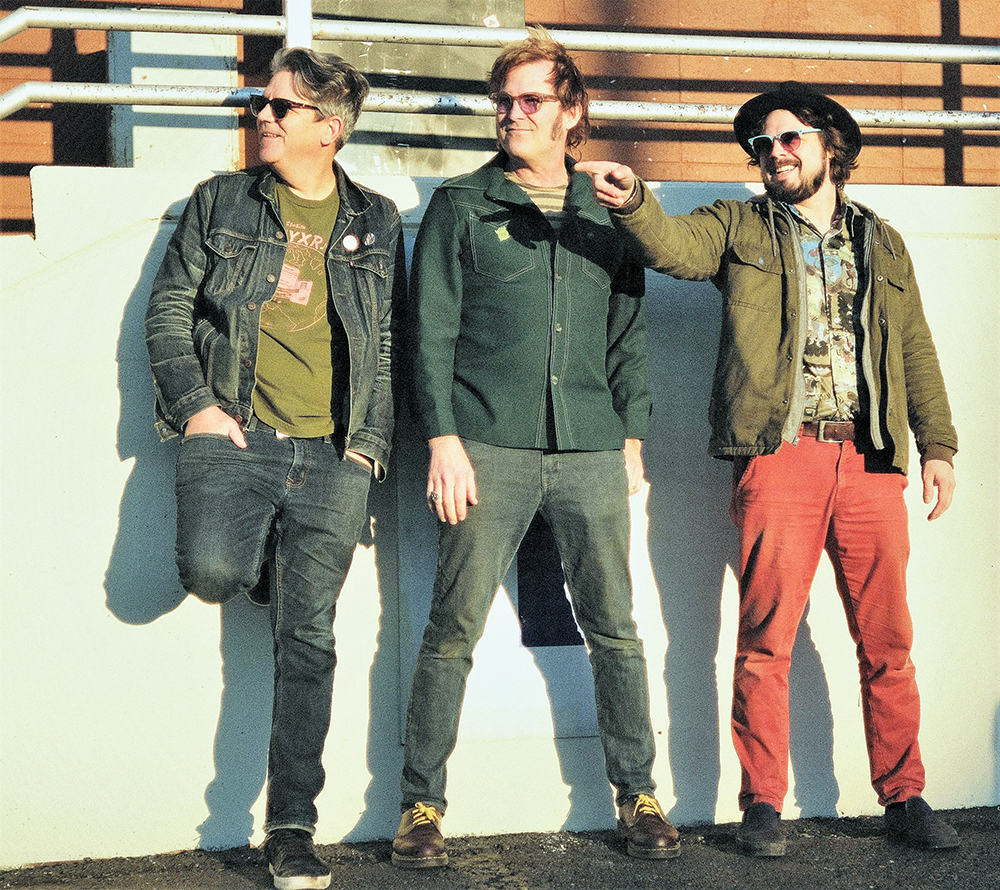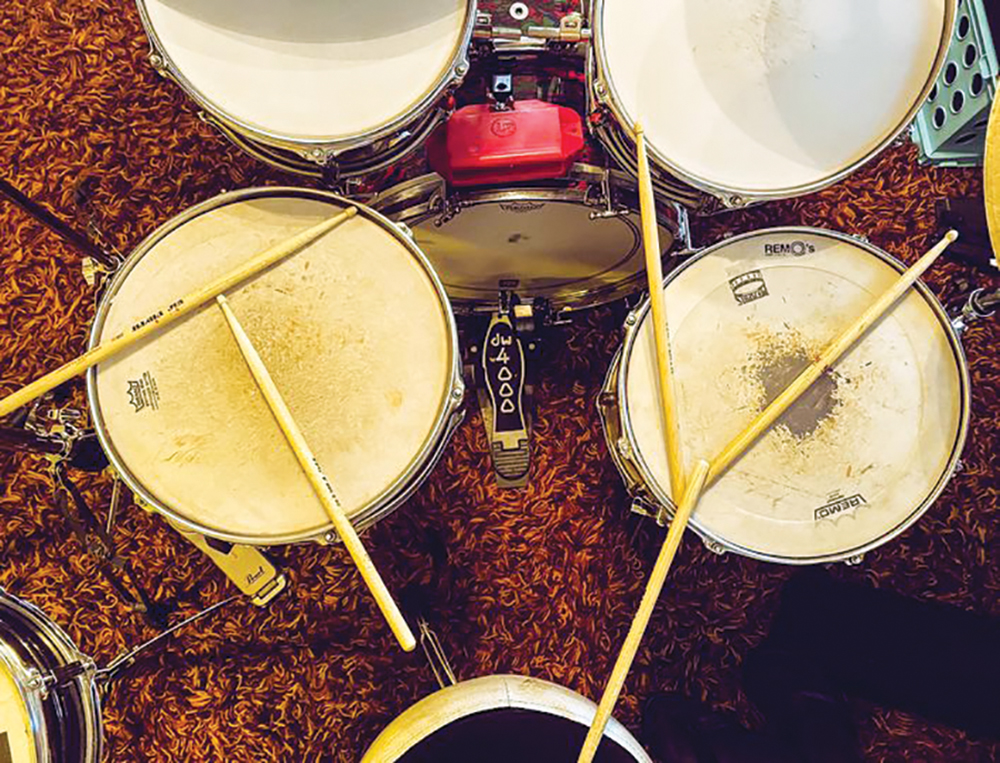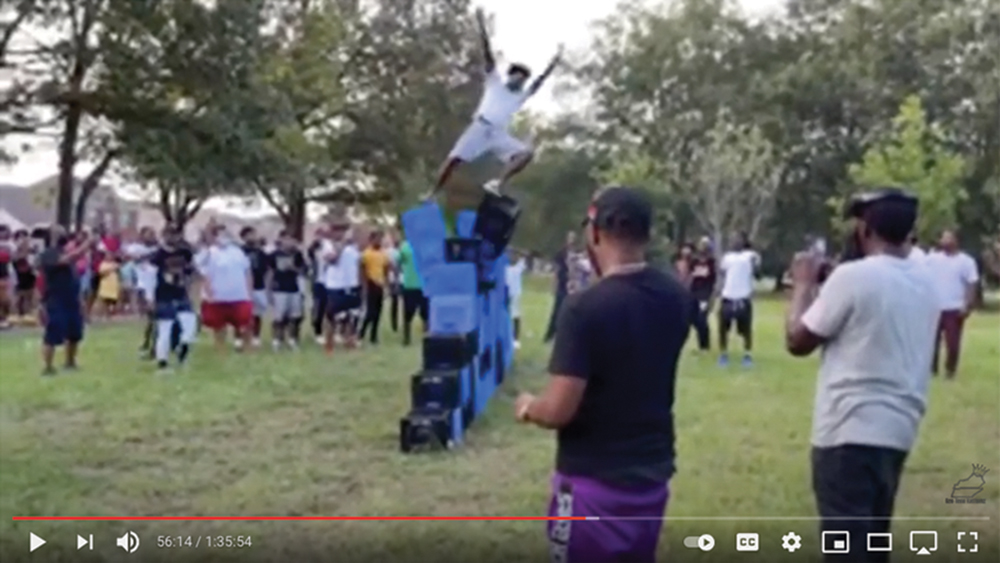There’s an epic tale unfolding in the Memphis music world these days. You might call it “The History of the Decline and Fall of the Rock Empire,” though it’s still not clear how much of a fall has been suffered. The local rock scene is a creative hotbed, as we’ll see, but that’s in the wider context of “rock music,” whatever that is, suffering an overall drop in popularity.
Six years ago, Salon noted that a Rubicon had been crossed in the music industry. “For the first time in Nielsen Music history, R&B/hip-hop has become the most consumed music genre in the United States,” wrote Taylor Link. “It’s a watershed moment for the Black-dominated genre. Former longtime volume leader rock … dropped to second with 23 percent of the total volume.” And only last year, Louder magazine decried, “There’s not one new rock/metal album among this year’s 200 best-selling albums in America.”
Such a sea change would have been unimaginable in the last century. Rock, aka “rawk,” the stepchild of rock-and-roll, arguably born with the opening power chords of The Kinks’ “You Really Got Me” in 1964, marked a whole new approach to the electric guitar, trading on its capacity for noise. If British musos were inspired by American innovators like Bo Diddley and local hero Paul Burlison, a whole new sound was forged once Kink Dave Davies leaned into the metallic sound of his distorted guitar chords — loudly. Suddenly that lurching cousin of the blues, the rock riff, was selling records. Now, nearly 60 years on? Not so much.
Museum Relics
That’s put in perspective with a visit to the Memphis Museum of Science & History (MoSH), where two current exhibits shed perspective on rock by looking at its chief tool and icon: the guitar. Both “America at the Crossroads: The Guitar and a Changing Nation,” curated by the National Guitar Museum, and MoSH’s own “Grind City Picks: The Music That Made Memphis” trace the instrument’s evolving design and cultural importance with more than 40 examples of the luthier’s craft on display. As Harvey Newquist of the National Guitar Museum notes, rock, hard rock, and metal were more than just a sound. They expressed the whole ethos of the counterculture.
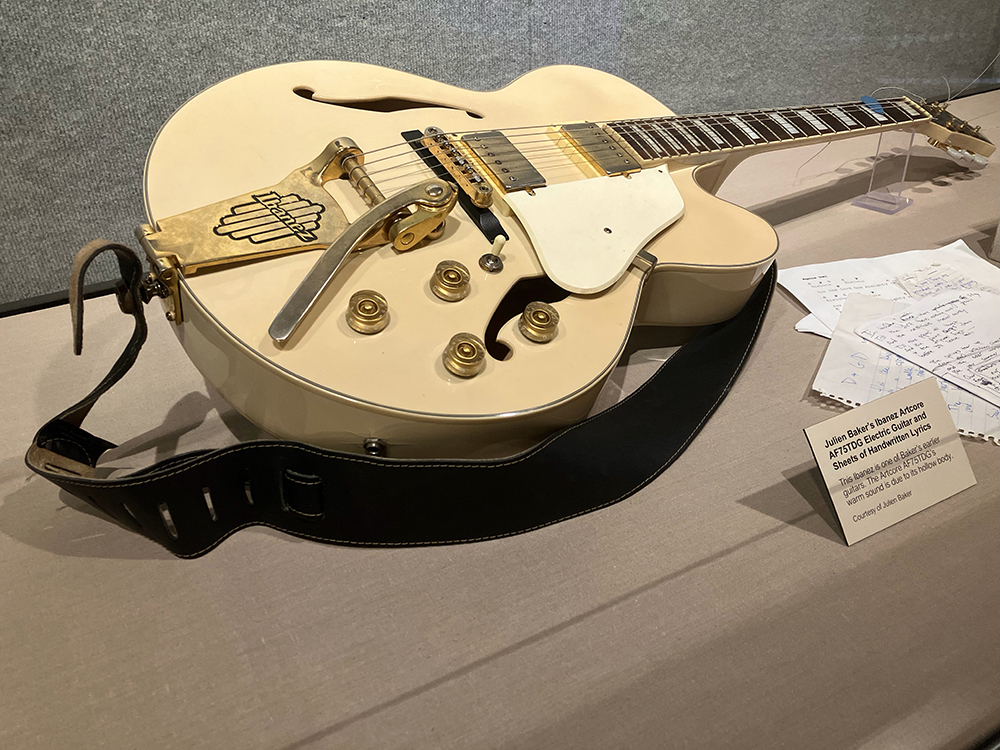
“It was the first generation that had guitar sounds of its own,” he says. “And they were distorted guitar sounds. Post-British Invasion, the first insanely heavy guitar sounds in America came from people like Jimi Hendrix, who inspired later bands like Aerosmith and Van Halen. The rise of that sound was very much a reflection of American youth culture, more so than country-western and the blues and everything else because it was so very integrated with teen angst, as it were.”
Angst and good times, that is. “I want to rock and roll all night — and party every day!” as KISS sang. The rock riff captured the zeitgeist in all its contradictions. “Hard rock and metal, and the sound of a distorted overdriven guitar, was a sound that had never been heard before,” says Newquist. “Here was a generation that didn’t want saxophones and pianos and horns. They wanted something raw and powerful to represent them, and hard rock and metal fit the bill perfectly.”
In the exhibit, changes in the guitar’s sound are tracked visually, as the instruments come to embody either futuristic utopianism or pre-modern warfare. “The iconic, heavy rock guitarist was playing Les Paul,” Newquist explains. “But B.C. Rich created extraordinarily angular guitars that were embraced by bands like Slayer and Lita Ford because they were so aggressive looking. They’re all points and angles, which gives them kind of a lethal look.”
It was all happening in Memphis, as well. At the end of the nationally touring exhibit comes MoSH’s Memphis addition, “Grind City Picks,” where you can see, mixed in with blues, soul, funk, jazz, and rockabilly axes, signs of heavy rock taking up permanent residence on the Bluff.
Hear Rock City
One of those signs in “Grind City Picks” is Steve Selvidge’s Fender Stratocaster. That single artifact captures an entire genealogy of heavy guitar rock in Memphis, in part because Selvidge is “following in his father Sid Selvidge’s footsteps,” as the signage says. But it goes deeper than that. The Selvidges were especially close with fellow Mudboy & the Neutrons member Lee Baker, a local pioneer of heavy guitar. “Baker would be over at the house a lot, or we’d be over at Baker’s house,” Selvidge noted of his childhood in a 2021 interview. “He had a guitar … and I was just fascinated with the guitar, any guitar.”
Indeed, Baker was an innovator in the realm of loud, distorted riffs. The influence of the 1969 debut by his pre-Mudboy band, Moloch, was obvious three years later when Jeff Beck, cutting an album in Memphis, covered their version of “Going Down.” The song’s slow, sinking rock riff was the perfect transformation of the blues into a wholly new genre, and Beck kept it in his set for decades to come.
Today, Selvidge the younger, arguably the city’s biggest Moloch fan, has repeatedly distinguished himself in the rock riff department, sporadically in the ’90s funk/alt-rock band Big Ass Truck and today with The Hold Steady, a Brooklyn-based group combining a pile-driving rock sound with Craig Finn’s trenchant, literate lyrics, with whom Selvidge has played with since 2010.
But that’s just the tip of the hard rock iceberg in this town, where, despite national trends, the rawk sound marches on. Memphis has had its hand in that game for decades. Having played with classic rock-leaning Target in the ’70s, singer Jimi Jamison then led the band Cobra, which in turn led to his joining the mega-group Survivor combo in 1984 (after they’d already hit it big with “Eye of the Tiger”). Jamison helped keep them in the charts with hits like “I Can’t Hold Back” and “High on You.” Like the bigger hard rock bands in the charts, Survivor was a prime example of “Album Oriented Rock” (AOR), which mixed heavy guitar riffs with catchy choruses and sparkling production values. Meanwhile, a Memphian who’d previously dabbled in country rock, Jimmy Davis, adapted to the times and dove into AOR himself, fronting Jimmy Davis & Junction. Their debut, Kick the Wall, was produced by Jack Holder, who’d helped pen songs for Southern rock outfit 38 Special, and the title song became a minor hit.
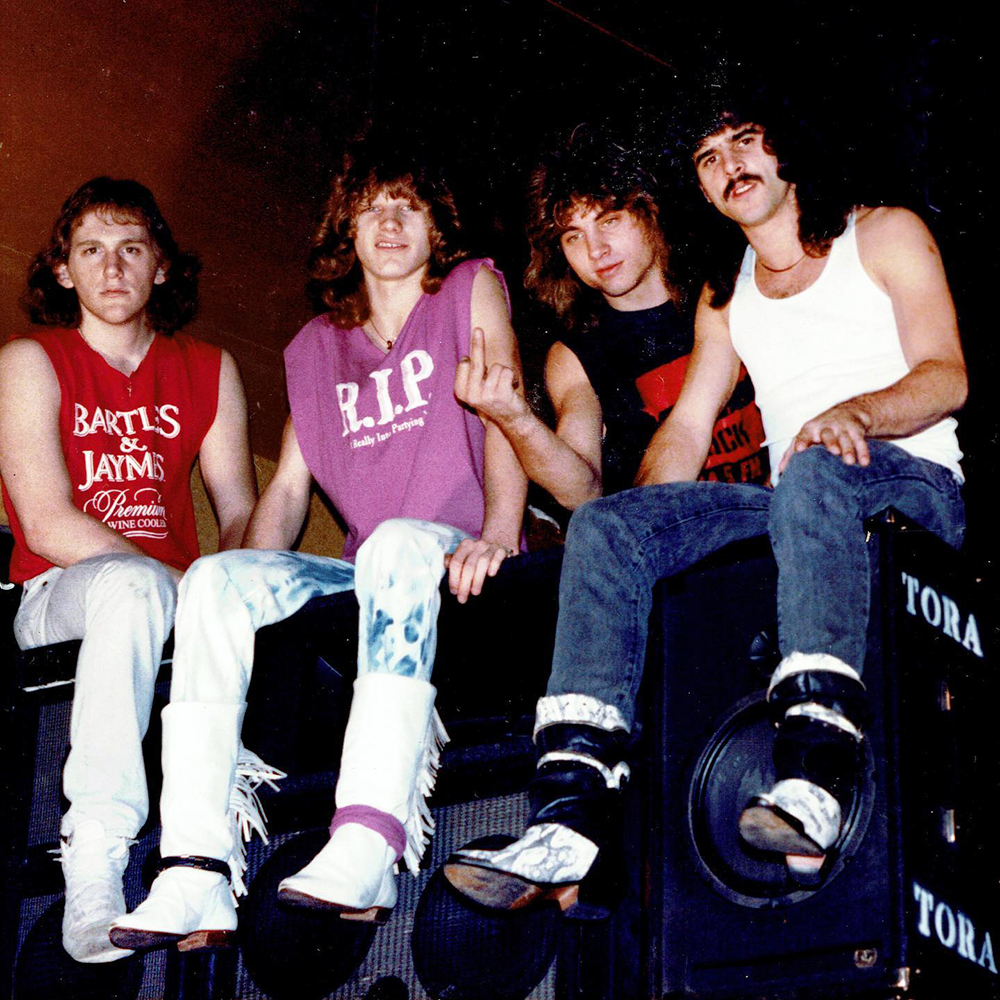
Those artists in turn inspired many younger groups in their wake. Take Tora Tora, sometimes considered a “hair metal” band. Singer Anthony Corder recalls those times in the late ’80s when he and three other high schoolers were just learning their craft. “We were into older bands like Target, one of Jimi Jamison’s bands, who were on A&M [Records],” he says. “We won some local competition and the prize was a day at Ardent. And when we went in, the engineer happened to be Paul Ebersol.” As it happened, Ebersol was to become a key figure in the heavy rock coming out of Memphis, ultimately producing local angst-metal hitmakers Saliva in the early 2000s. “Paul just saw something in us that we didn’t even see,” says Corder.
Championed by Ebersol, Ardent took the band under its wing, and it was a particularly charmed era to be playing hair metal. “As we were coming up, the scene was exploding,” Corder notes. Before long, with Corder still in high school, Tora Tora was signed to A&M as well, and their debut album reached #47 on the charts. By the dawn of the ’90s, other Memphis groups, like Roxy Blue, Every Mother’s Nightmare, and Mother Station (featuring guitarist Gwin Spencer and singer/songwriter Susan Marshall), were also thriving, albeit not with the same success as Tora Tora. But even as Memphis metal was going big time, the seeds of its demise had already been sown.
Metal Meets Punk
Even before Tora Tora’s ascent, an alternative approach to hard rocking sounds had been gestating in the legendary Antenna Club, originally known as The Well. While some punk was morphing into what’s now called hardcore, played at a frenetic pace and with little melodic content, others, like the Modifiers, played metal-inspired music that retained a punk attitude. “The Modifiers poured their sweat and souls into every performance, breaking ground and opening doors for every original punk/alternative band in this town,” wrote J.D. Reager in the Memphis Flyer after the band’s guitarist, Bob Holmes, died in 2019.
Reager quotes Memphis native David Catching, who, after playing with the Modifiers for 10 years, went on to be a producer and guitarist for the Eagles of Death Metal and Queens of the Stone Age: “I’ll never forget meeting Bob at the Well,” says Catching. “He and Alex Chilton were my first guitar heroes I could actually talk to.”
While the Modifiers never dented the charts, to some extent they prefigured Nirvana’s breakthrough smash Nevermind in 1991, which spelled the end of hair metal’s dominance. The so-called grunge movement proffered “seventies-influenced, slowed-down punk music,” as producer Jack Endino told Rolling Stone in 1992. Like the heavier bands at the Antenna, grunge bands rejected the more pop elements of glam metal but kept the riffs, and their audiences followed suit. Ironically, by 1995 the Antenna Club had closed its doors. But a new hybrid hard rock was just getting started.
One unique Memphis group from that era was Son of Slam, whose album Trailer Parks, Politics & God was released in 1994. According to LastFm.com, they “spit in the face of pretty boy glam bands” and “found legions of loyal fans in cities throughout the South and the Midwest.” Fronted by the flamboyantly unhinged Chris Scott, the group also featured guitar virtuoso Eric Lewis and the rhythm section of Terrence “T-Money” Bishop (bass) and John “Bubba” Bonds (drums). All four, especially the latter two holding down the rhythm, continue to impact the scene today.
Only slightly later, other artists fond of killer riffs were getting their start. Local bluesy punks the Oblivians inspired young James Lee Lindsey Jr. to begin a career of his own that, like the Modifiers before him, would sometimes straddle the line between punk and metal.
Taking the name Jay Reatard, Lindsey began firmly in the punk camp, yet as the century turned, he partnered with Memphis songwriter/guitarist Alicja Trout to form the Lost Sounds, slowing the tempo slightly and adding synths to their guitar crunch. Beginning in the early 2000s, long after hair metal’s star had fallen, the Lost Sounds and other Goner-affiliated bands kept the torch of hard rock riffs burning. Hard rock was already giving way to hip-hop and electronic music on the charts, but it still percolated in Memphis with a fierce, rebellious energy.
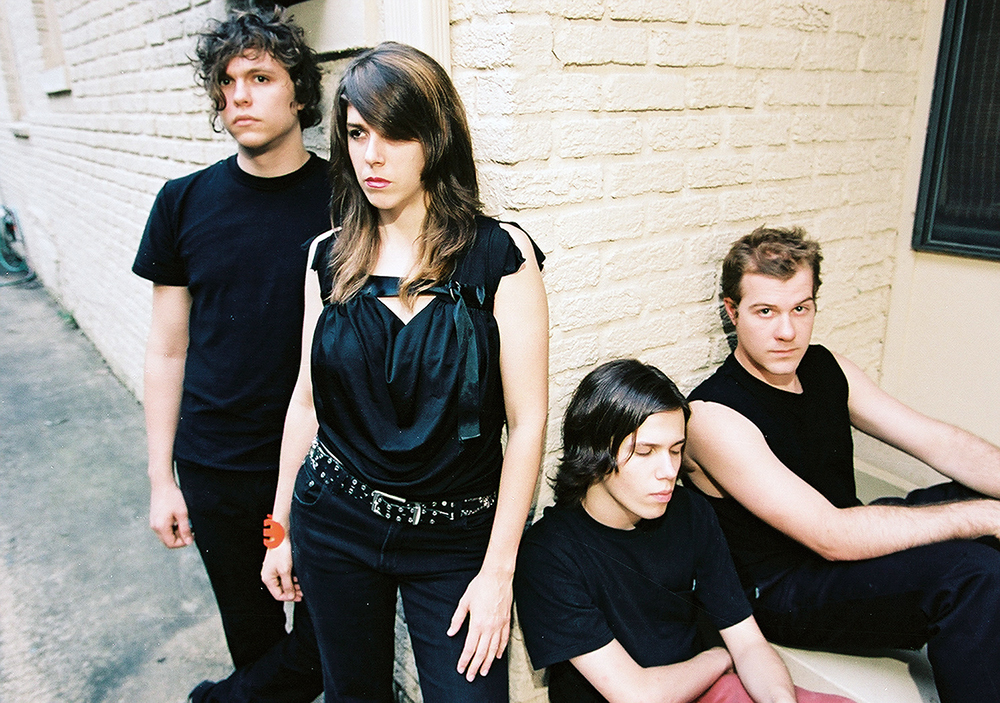
“We were trying to challenge ourselves,” Trout says today of the Lost Sounds’ debut, Black-Wave. “It was not quite prog rock because there weren’t any jam-out moments there. We called it Black-Wave because we were trying to mix black metal and new wave.”
The Lost Sounds challenged listeners’ preconceptions as well, not least because a woman playing heavy guitar riffs was not a common sight. “When I started playing, it was novel to have a woman playing guitar and playing heavy,” Trout says. “Now, it’s no longer a novelty to be a female playing guitar in a band, although I feel like rock is still mainly dude territory.”
Trout ultimately parted ways with Lindsey, who carried on as Jay Reatard, eventually releasing the popular punk/metal hybrid albums Blood Visions and Watch Me Fall in 2009. Tragically, the next year a likely overdose took his life, a loss that the city still mourns. But Trout had already struck out on her own years before, recruiting Bishop and Bonds to found the River City Tanlines in 2004.
“I think the River City Tanlines is the most rock-and-roll band of any band I’ve ever been in,” Trout says today. “The Lost Sounds were just getting further and further from conventional songwriting, getting into time changes and epic outros and noise intros and all these layered keyboards. It really came down to me thinking, ‘Man, I just want to do something simple and fun.’ Going back to basic songwriting with a good verse or chorus riff. And then Terrence and Bubba put their rock experience twist on it.”
The Son of Slam rhythm section was perfect for Trout, for whom the “punk” label never was quite appropriate. “Whenever I’m put in with punk,” she notes, “the only thing I can think of is the Ramones, Blondie, and maybe The Velvet Underground — the New York definition of that word. Other than that, I only like smatterings of punk. It’s not me at all.”
We Will, We Will Rock Us
Despite all labels and market trends, artists like Selvidge and Trout epitomize hard rock’s staying power. The River City Tanlines still play today, as does Trout’s other group, Sweet Knives. That band’s 2022 album Spritzerita is a masterful punk/hard rock hybrid not unlike the Lost Sounds and, as Trout explains, that’s no accident. “I formed Sweet Knives to play all the Lost Sounds songs that had been put to sleep,” she says. “But it wasn’t long until [original Lost Sounds drummer] Rich Crook and I started writing songs together.” Now they continue with an evolving lineup.
Other bands that began in the ’90s have enjoyed similar longevity. The 30-year-old band Pezz, who, according to the Flyer’s Chris McCoy, has always had “a melodic streak that endeared them to pop-punk fans,” continues to play today and is featured in the MoSH exhibit. And the Subteens, who also feature Bonds on drums, have soldiered on for nearly as long, releasing what is perhaps their greatest work, Vol. 4: Dashed Hopes & Good Intentions, only last year. It’s full of “propulsive anthems, driving riffs, and soaring solos that offer portraits of an underground community teetering between hope, exultation, rage, and despair,” as noted in the Flyer.
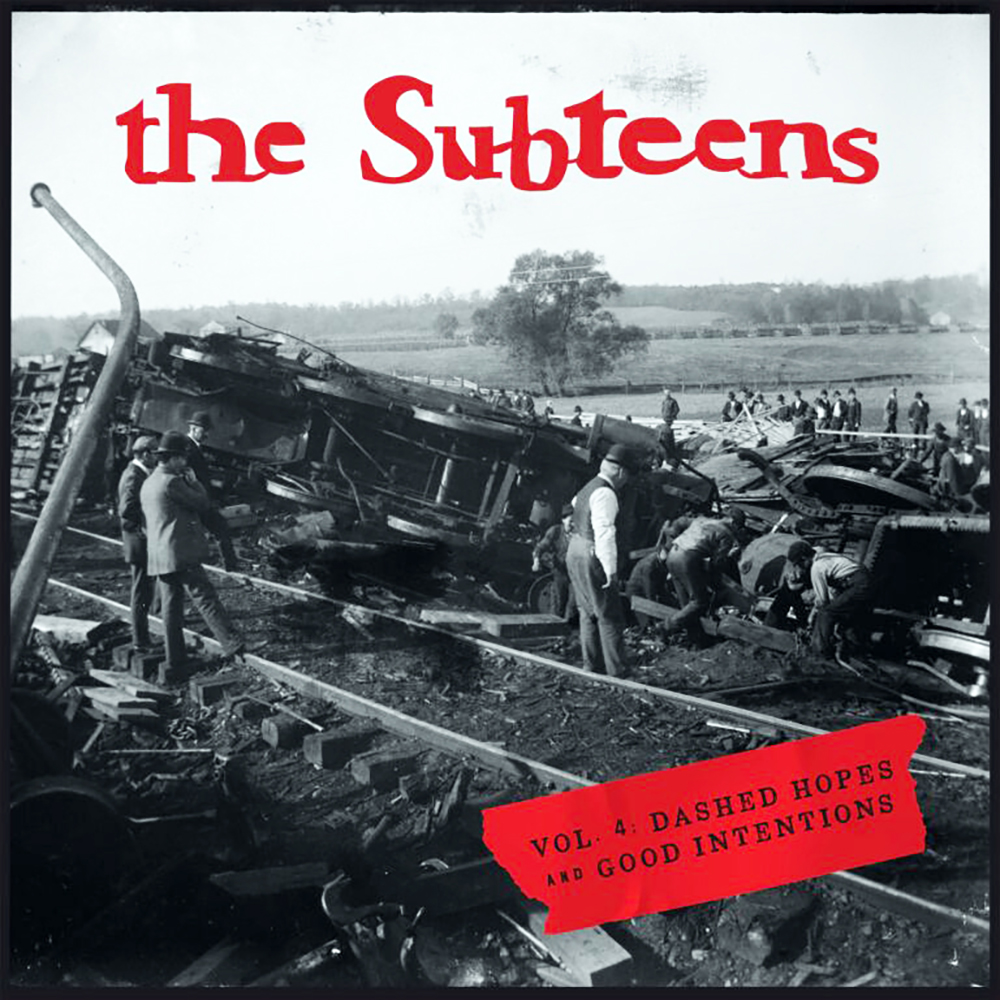
Still more groups straddling punk and hard rock have sprouted up in the past decade and a half, including the Dirty Streets, whose rocking guitar sound harks back to the Faces or The Rolling Stones; HEELS, who combined Clash-like politics with up-tempo riffs in last year’s masterpiece, Pop Songs for a Dying Planet; Opossums, who skew towards pop punk melodicism in their latest, Bite; and the duo Turnstyles, who’ve perfected the rock sound in its most minimalist expression: a guitarist and a drummer, both of whom sing.
Simultaneously, some masterful guitarists are keeping the classic rock spirit alive here. The originals on Robert Allen Parker’s recent double album, The River’s Invitation, mine a classic mash-up of Led Zeppelin, Jimi Hendrix, and the Allman Brothers. Mama Honey, a trio led by guitarist Tamar Love, relies on her Hendrix-inspired, unabashedly rock-and-funk-fueled riffs.
And no group tours more regularly than Joecephus and the George Jonestown Massacre, the brainchild of guitarist Joey Killingsworth, who’s specialized in masterminding charity albums that draw on cameos from the metal, rock, and punk worlds (such as J.D. Pinkus from the Butthole Surfers), often in tributes to classic ’70s rockers like Black Oak Arkansas and Nazareth (with an MC5 tribute to be released later this year). Killingsworth is also the axe man behind A Thousand Lights, who started as a Stooges cover band but soon morphed into an original goth rock band in their own right.
Perhaps the clearest sign that hard rock is rooted here for good is the revival Tora Tora has enjoyed in recent years, having released an album of all new material, Bastards of Beale, in 2019 — still with the original four members that met in high school. “There’s still an audience here that I’m playing to, and they’re like super fans,” says Corder. “They’re super passionate. We jumped on the Monsters of Rock Cruise for the first time back in 2017, and man it was the most awesome experience. We’ve rediscovered our heavy metal tribe.”



